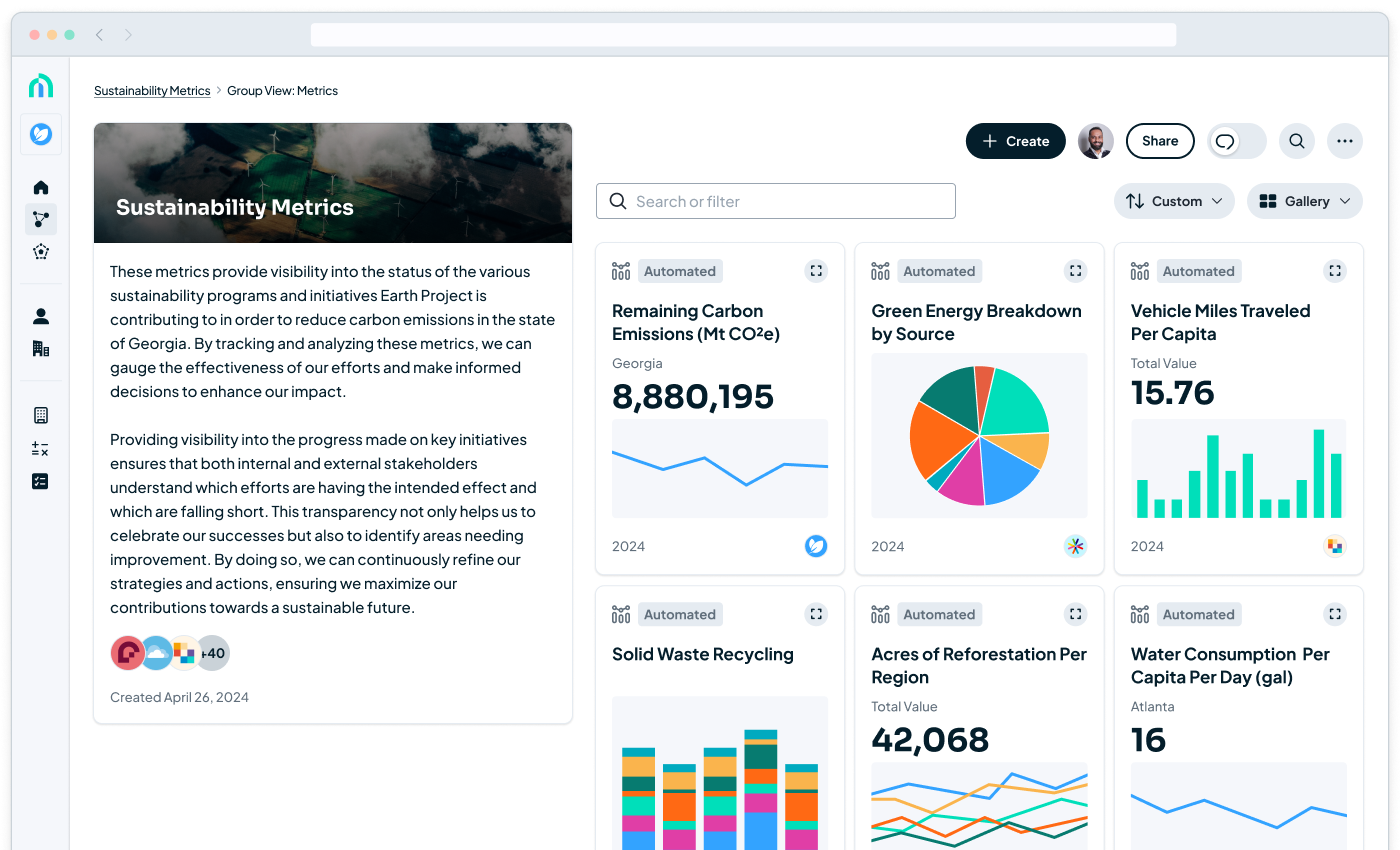Balancing Financial and Sustainability Performance
Explore the balance between financial performance and sustainability in an evolving regulatory landscape with the help of Metaimpact.

Organizations are being challenged to be far more transparent about their sustainability efforts. This is driven by two factors: new regulations forcing public disclosure; and prior promotional-oriented communications causing reputational risk and compelling some companies to walk back claims of net-zero status.
But transparency must be productive. It has to build trust with stakeholders and the market against the backdrop of a divisive political climate and continuing skepticism because of greenwashing.
The question is, what does productive transparency mean? Reporting disclosures will provide performance data and show progress but will give little insight into the reality on the ground: the challenges, barriers, expectations, and small, but important, victories that will likely be the hallmark of many sustainability programs. And then there is a practical reality that not everything will go well—when and how do you communicate failures?
Productive transparency— the ability to have others see, understand, and empathize—is an essential part of building trust. Without it, programs will spend far too much time on defensive communications. With it, programs can become far more efficient in delivering the results that are disclosed through reporting and through dialogue with stakeholders.
Sustainability programs begin their journey with a market polarized on the merits and real imperative of ESG/sustainability, with built up cynicism from prior greenwashing, and from walk-backs from prior claims of net-zero status based on carbon offset overstatement. This is not an environment predisposed to trust.
A lack of trust wastes precious resources at a time where CFOs are already cautious about funding sustainability. Low levels of trust force programs to spend unproductive time playing defense internally and externally. As opposed to building the program and driving the performance (that is foundational to building trust), programs spend finite resources on efforts that at best stem the tide but certainly don’t help drive efficient performance.
Trust is a currency that creates the time and space to deliver performance. And productive transparency is necessary to create that trust.
Sustainability programs will need to engender trust to be successful – trust built from data transparency and the invaluable context of that data.
Internal and external stakeholders likely require at least two communication elements: the numbers and the context to why the numbers are what they are. Essentially, you want to tell compelling stories, peppered with critical data, that stakeholders understand and appreciate because it leaves them with a rich contextual view of the program: past, present, and future.
A key tool available to programs is data storytelling: the ability to tell stories through data that show progress, provide historical context, animate barriers to overcome, and provide guidance as to what is ahead. Data storytelling should be a foundation of sustainability management and measurement programs, linked to reporting, and serve as a core communications vehicle to internal and external stakeholders and the market in general.
Data storytelling can become a central tool to creating productive transparency and engendering trust. If successful, you can create a virtuous cycle where trust enables efficiency which drives performance which increases trust.

Download the one pager to learn how Metaimpact powers seamless coordination across internal teams, strategic partners, and customers with a secure, collaborative data platform purpose-built to align efforts around shared objectives, consolidate shared data to measure progress, and accelerate delivery of business outcomes.

Download the one pager to learn how Metaimpact enables corporate foundations to collaborate with grant recipients on funded initiatives, give grantees the opportunity to connect, and demonstrate the collective impact of their philanthropic endeavors.

Download the ebook to learn how your organization can go beyond reporting and put a sustainability program in place that drives real progress.

Download the one pager to learn how Metaimpact equips visionary leaders of multi-stakeholder efforts with the tools to define shared goals, drive collective action, and measure meaningful progress.

New standards and regulations are coming into place in 2024 and 2025 that will change the fundamentals of sustainability. Regulations that will expand accountabilities, while driving public scrutiny and comparability.

Explore the balance between financial performance and sustainability in an evolving regulatory landscape with the help of Metaimpact.

Sustainability programs need a management and measurement environment to address the interdependencies and complexities of multi-stakeholder, multi-discipline initiatives that span internal functions and external organizations.

Request a demo to learn how Metaimpact helps organizations measure performance.
Notifications